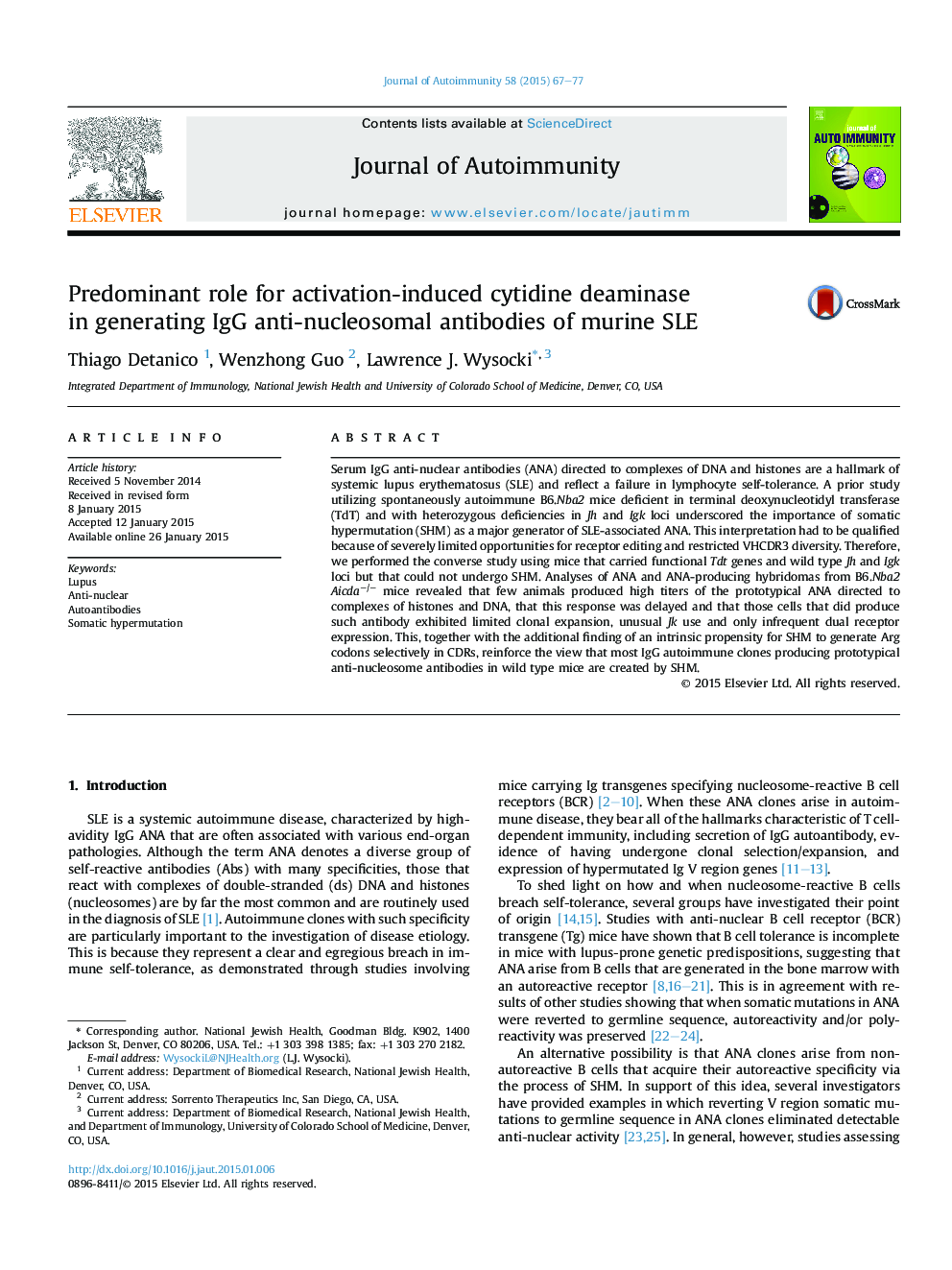| Article ID | Journal | Published Year | Pages | File Type |
|---|---|---|---|---|
| 3367737 | Journal of Autoimmunity | 2015 | 11 Pages |
•B6.Nba2 Aicda−/− mice exhibit a delayed anti-nucleosomal response with incomplete penetrance.•This autoantibody response has unusual characteristics atypical of autoimmune Aicda+/+ mice.•Germline Ig V CDRs but not FRs have unusually high frequencies of AGC/T Ser codons.•These codons are prone to mutate into Arg codons via SHM to confer anti-nuclear activity.•This trend holds consistently for mouse and human VH, Vκ and Vλ genes.
Serum IgG anti-nuclear antibodies (ANA) directed to complexes of DNA and histones are a hallmark of systemic lupus erythematosus (SLE) and reflect a failure in lymphocyte self-tolerance. A prior study utilizing spontaneously autoimmune B6.Nba2 mice deficient in terminal deoxynucleotidyl transferase (TdT) and with heterozygous deficiencies in Jh and Igk loci underscored the importance of somatic hypermutation (SHM) as a major generator of SLE-associated ANA. This interpretation had to be qualified because of severely limited opportunities for receptor editing and restricted VHCDR3 diversity. Therefore, we performed the converse study using mice that carried functional Tdt genes and wild type Jh and Igk loci but that could not undergo SHM. Analyses of ANA and ANA-producing hybridomas from B6.Nba2 Aicda−/− mice revealed that few animals produced high titers of the prototypical ANA directed to complexes of histones and DNA, that this response was delayed and that those cells that did produce such antibody exhibited limited clonal expansion, unusual Jk use and only infrequent dual receptor expression. This, together with the additional finding of an intrinsic propensity for SHM to generate Arg codons selectively in CDRs, reinforce the view that most IgG autoimmune clones producing prototypical anti-nucleosome antibodies in wild type mice are created by SHM.
